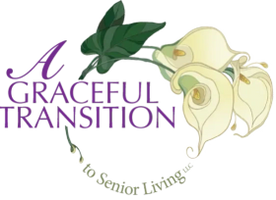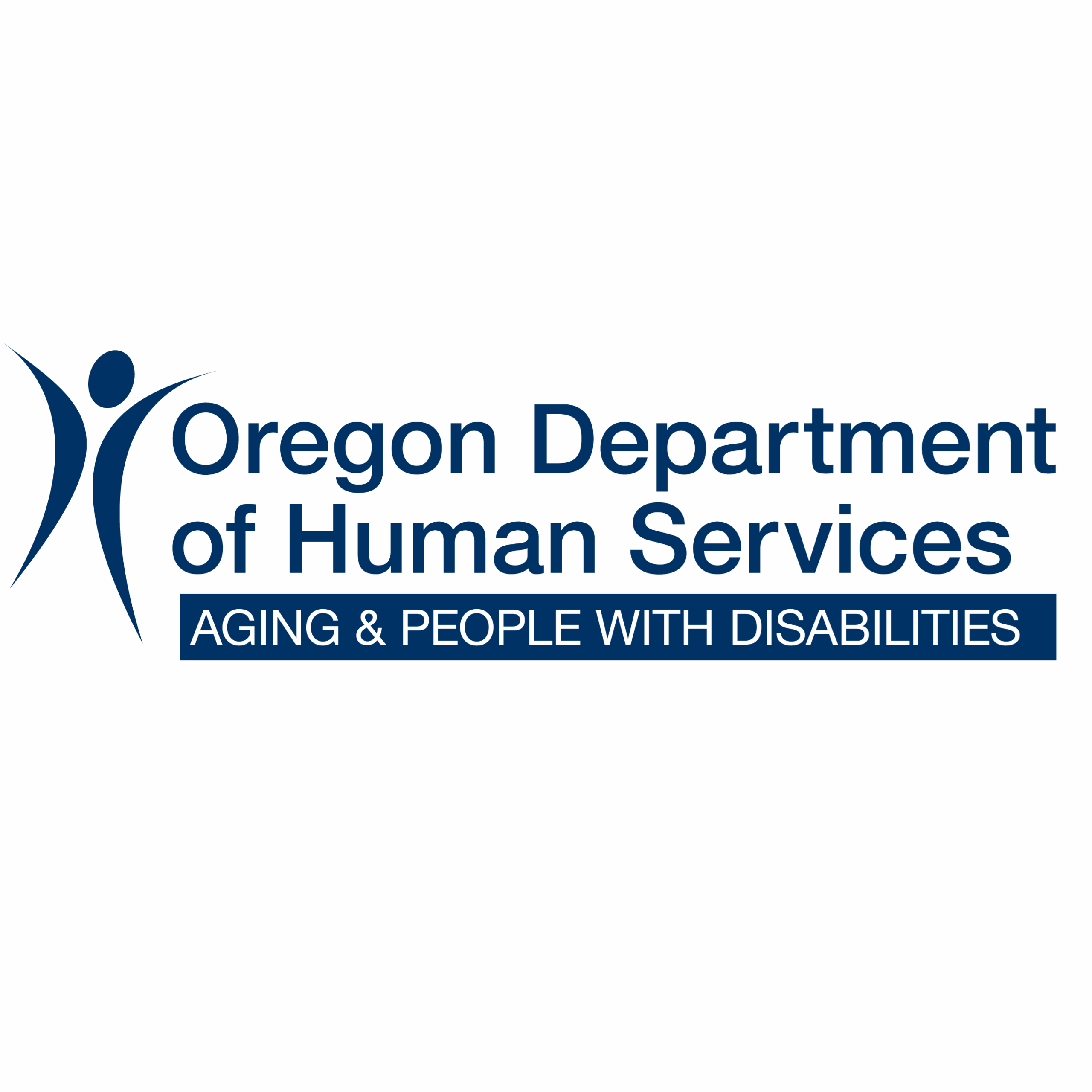Placement Referral Specialist
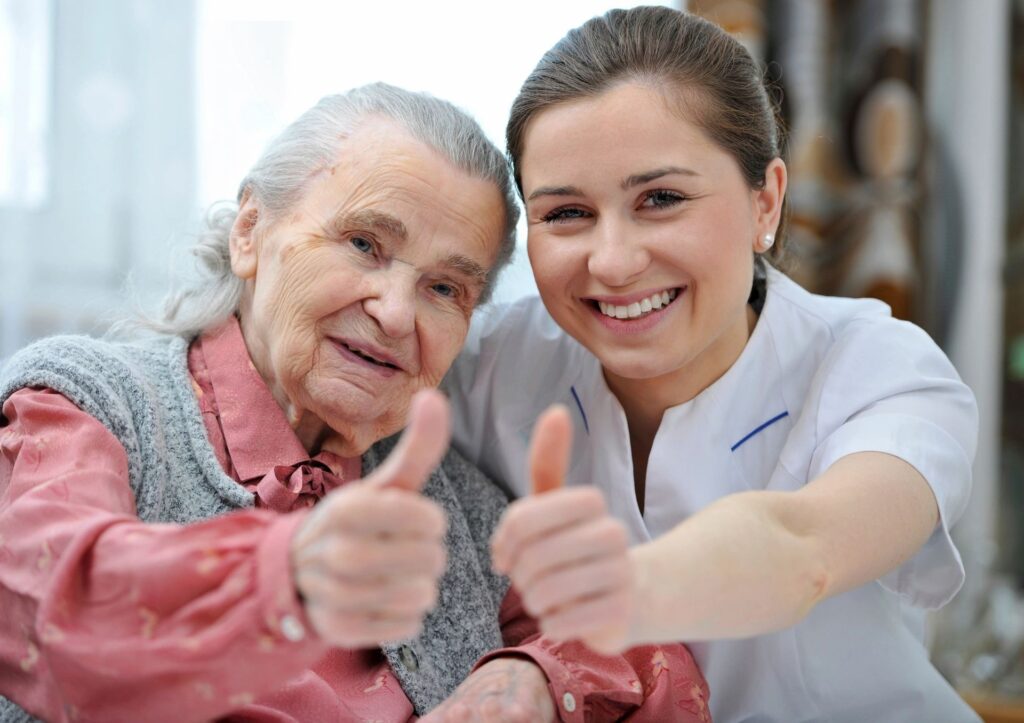
What Is a Placement Referral Specialist (PRS)? A Placement Referral Specialist (PRS) is a knowledgeable and compassionate senior living advisor who helps older adults and their families find the right senior housing and care options. The PRS designation is recognized by the National Placement & Referral Alliance (NPRA) as a mark of professionalism, integrity, and excellence in the senior care industry. A PRS provides trusted guidance to families navigating complex care decisions — ensuring that every recommendation aligns with the individual’s needs, preferences, and quality of life goals. Each PRS follows the NPRA Code of Ethics and Best Practices, giving families confidence that they are working with someone who puts care, honesty, and respect first. Why Work with a Placement Referral Specialist? A Placement Referral Specialist does much more than make introductions to senior living communities. They partner with families, listen carefully to their concerns, and simplify what can often feel like an overwhelming process. How a PRS Can Help: Assessing Care Needs: A PRS helps families evaluate their loved one’s health, safety, and lifestyle requirements — whether it’s independent living, assisted living, memory care, or skilled nursing. Exploring Senior Living Options: They provide accurate, up-to-date information on care types, costs, and local resources to support each family’s situation. Simplifying the Process: From researching options to coordinating tours, a PRS streamlines the journey and eliminates uncertainty, allowing families to focus on what truly matters — their loved one’s well-being. Providing Compassionate Support: Having a caring, experienced professional walk beside you through this transition can relieve stress and bring much-needed peace of mind. “It’s an honor to walk this journey with you and your family.” Our PRS consultant is reliable, experienced, and committed to helping families find safe, comfortable, and supportive living arrangements. What Does a Placement Referral Specialist Cost? Here’s the good news — there’s no cost to families when working with a Placement Referral Specialist. PRS professionals are compensated by the senior living communities they recommend, which means families receive expert advice and personalized referrals at no direct cost or hidden fees. This approach benefits everyone: Families receive trusted, professional guidance and save time finding the right senior living option. Senior living communities connect with residents who are a good fit for their services and environment. With a Placement Referral Specialist, families gain expert insight, caring support, and confidence — all without any financial obligation. Key Takeaways PRS = Placement Referral Specialist, recognized by the National Placement & Referral Alliance (NPRA). We offer no-cost senior placement and referral services for families and caregivers. Provides ethical, compassionate, and professional guidance in navigating senior care options. A trusted resource for assisted living, memory care, and senior housing decisions. Description of this Post: Learn how a Placement Referral Specialist (PRS) helps families find the best senior living or care options — at no cost. Trusted, compassionate, and professional guidance for seniors and caregivers. Want to get started? We do too. It starts with a phone call and we will look at these items and more to find the perfect placement. Matched with our expertise we will have not trouble finding your ideal placement. https://www3.multco.us/AdultCareOptions/LevelofCare/LevelofCareWorksheet
Caregiver – Should I be the one?
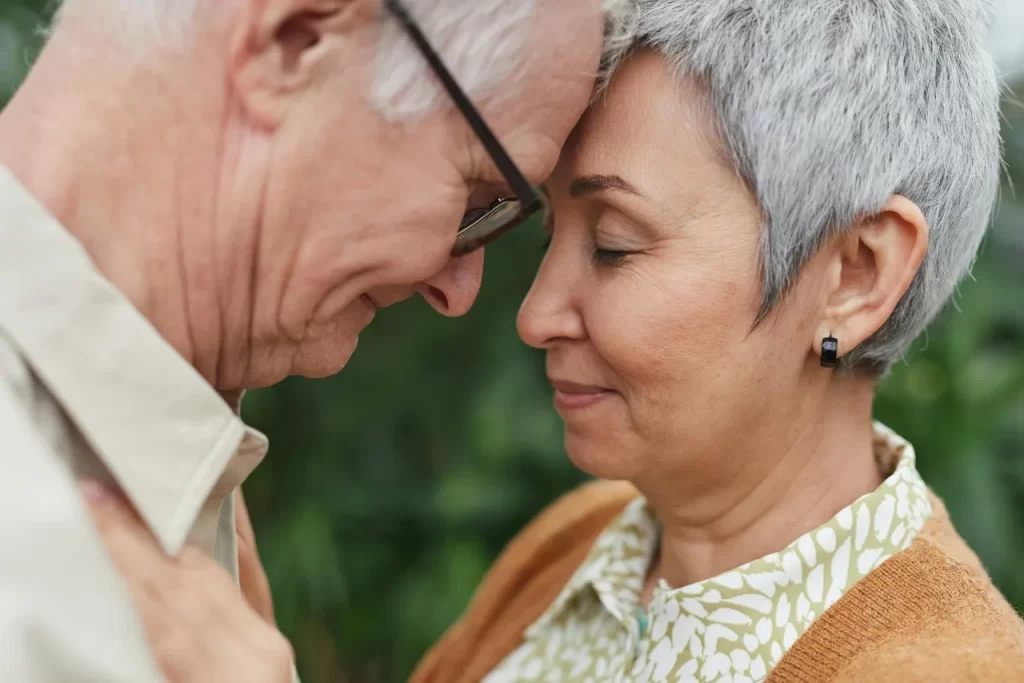
Learn how couples can navigate aging together with love and wisdom. Explore home safety, spousal caregiving, and professional care options to support aging in place while maintaining dignity and emotional connection.
Senior Home who to TRUST? Senior Referral Credentials

Senior Housing — WHO can I TRUST? Be assured of ethical responsible service with backing of the OSRAA Since 2004, Oregon Senior Referral Agency Association has been a group of referral agents collaborating and sharing of information. In 2011, OSRAA officially established Bylaws and a Code-of-Ethics. Together we are stronger and better able to offer our referred families better ideas and services. Picking your curated senior housing for your loved one is a deeply personal and an important decision. We prioritize safety, comfort, and specialized care for you. Should you be exploring assisted living, memory care, skilled nursing, or independent senior communities, it’s essential to find a setting that aligns with your loved one’s health needs, lifestyle preferences, and emotional well-being. In Oregon, families have access to a range of elder care options that offer medical support, daily assistance, and enriching environments tailored to aging adults. By our agency staying informed about elder homes and communities we are better able to provide open and current available resources. With AGT and our strong presence in ORSAA, you can ensure your loved one transitions into a senior living community that fosters dignity, security, and peace of mind. The purpose of OSRAA is to “Promote Professional and Ethical Senior Referral Services in the State of Oregon.” OSRAA has been a group of referral agents collaborating and sharing of information, established Bylaws and a Code-of-Ethics and regular meetings and information fairs. Together referral agents are stronger and better able to offer our referred families better ideas and services. Whether you request information from AGT or another referral agent. Be sure they are local to your area AND if in Oregon be sure they are an ORSAA member in good standing. Seeking senior placement in Oregon, you are not alone! We provide vetted official state service referrals, for all care needs, and specific advisory services. AGT is in good standing with ORSAA and we can help narrow your search and find appropriate care options. State and public services Aging and Disability Resource Connection (ADRC) of Oregon: The main public resource for finding local long-term care support options. We help you navigate Oregon Department of Human Services (ODHS): ODHS oversees Aging and Disability Services and regulates adult foster care facilities. We assist you with 211info.org: A statewide resource for finding help, including senior-specific services. You can call 211 or text your ZIP code to 898211. AGT knows Area Agencies on Aging (AAAs): These local offices provide services and support for older adults we help you navigate all this. With AGT Eldercare Location becomes easy: Eldercare Locator is a national public service connecting you to services for older adults. You can personally reach them at 1-800-677-1116 or via their website or you contact AGT and we do ALL that for you!
Scam Alert — Elderly Scams to be Aware of

A Cautionary Tale from Oregon: Outsmarting Scammers and Staying Safe It started with something simple—a new oven. After purchasing it, I did what any cautious consumer might do: I bought insurance coverage. Not long after, an email arrived from the company. But something felt off. The grammar was clunky, the spelling questionable. It looked suspicious, even though it turned out to be legitimate. Still, I wasn’t about to take chances. I picked up the phone and called the company. The first representative I spoke to was… well, let’s just say he was more confusing than helpful. He insisted I stay on the line and not call anyone else, but his tone was argumentative and dismissive. I hung up. Trusting my instincts, I called back and reached a second representative—this one articulate, respectful, and genuinely helpful. That call gave me clarity and peace of mind. But the experience reminded me how easily things could have gone wrong. In Oregon, scams targeting seniors are becoming increasingly sophisticated—and personal. Scams That Exploit Emotions Scammers often prey on relationships and emotional vulnerability: Romance Scams: Fake online profiles lure seniors into relationships, then ask for money under false pretenses. Men and women targeted are often teased into situations where they think they are in love. Scammers create fake online profiles to build a relationship with a senior and then ask for money for made-up reasons. Grandparent Scams: A frantic call from someone pretending to be a grandchild in trouble, begging for urgent financial help. Someone pretends to be a grandchild in trouble and urgently needs money. “Don’t you know who I am, Grandma?” These scams are designed with a script to trick you into urgency and keep you on the phone. Family/Caregiver Scams: Trusted individuals—sometimes even relatives—manipulate seniors for financial gain. If you suspect someone, contact someone affiliated or accredited with a senior or elder group. Groups such as Oregon Senior Referral Agency Association or National Placement and Referral Alliance. LaVona is OSRAA Secretary you can contact her here. Here is our NPRA page Impersonation Scams Fraudsters love to play dress-up: Government Impersonation: Posing as IRS agents or officials, scammers demand money or personal info, often using threats. Remember: real agencies won’t ask for gift cards or wire transfers. Tech Support Scams: A call claiming your computer has a virus, your identity has been compromised or computer problem. Scammers gain remote access and charge for fake services. After they gain remote access by asking your permission they have access to your information. They keep you on the phone and create an urgency regarding any number of things such as investments, bank accounts, cell phone or internet. Just hang up even when they tell you not to. Other Common Scams in Oregon Sweepstakes & Charity Scams: “You’ve won!” they say—just pay a fee. Or they pose as a charity, tugging at your heartstrings. Home Repair Scams: Unsolicited offers for repairs, upfront payments, and then… nothing. Telemarketing Scams: High-pressure calls selling fake products or investments. Medicare Scams: Offering “free services” in exchange for your Medicare number, or threatening to cancel coverage unless you comply. Why Seniors Are Vulnerable Several factors make seniors more susceptible: Social Isolation: Loneliness can make a scammer’s attention feel welcome. Cognitive Decline: It’s harder to spot red flags or resist manipulation. Recent Life Changes: Loss of a spouse or major transitions can create emotional vulnerability. Financial Stress: Promises of easy money can be tempting when finances are tight. How to Stay Safe on the Web Here’s how you—and your loved ones—can be protected: Stay informed and talk openly about scams. Be skeptical of unsolicited calls, emails, or messages. Always verify the identity of anyone asking for personal info. Never share sensitive details with unverified sources. Don’t rush—scammers thrive on urgency. Avoid payments via gift cards, wire transfers, or crypto. Sign up for the National Do Not Call Registry. Monitor your financial accounts regularly, everyday is best. Consider identity theft protection services. Report anything suspicious—do not hesitate. Where to Report Scams in Oregon If you suspect a scam or abuse, here’s where to turn: Resource Contact SAFELINE Elder Abuse Hotline 855-503-SAFE (7233) Emergency Call 911 Oregon DOJ – Fraud Division 877-877-9392 FBI Internet Crime Center ic3.gov FTC – Scam Reporting reportfraud.ftc.gov Medicare Help 1-800-MEDICARE or 1-877-808-2468 Scam Resources for Seniors in Oregon Oregon DHS – Aging & People with Disabilities Adult Protective Services (APS) – Call 503-988-4450 in Multnomah County Elders in Action – Advocacy and support Legal Aid Services of Oregon – Senior Law Project ADRC of Oregon – adrcoforegon.org or 855-673-2372 AARP Oregon – Fraud Watch Network and educational events Staying informed, trusting your instincts, and speaking up are your best defenses. If something feels off—like that email I received—don’t ignore it. Ask questions, verify, and never be afraid to hang up and try again. Because in Oregon, and everywhere else, protecting our seniors starts with awareness and action. A Call That Could Have Cost Me: The Tax Scam Twist It was a quiet afternoon when the phone rang. The voice on the other end was stern, almost official. “This is the IRS,” the caller said. “You owe back taxes. If you don’t act immediately, legal action will be taken.” My heart skipped. He told me not to hang up. Not to call anyone else. Not even to check the IRS website. Instead, he instructed me to go to the nearest ATM, withdraw a specific amount of cash, and meet him at a government office to “settle the debt.” It was bizarre. Government offices don’t operate like that. And the IRS doesn’t demand cash withdrawals over the phone. Still, the urgency and fear he injected into the conversation were powerful. He used phrases like “criminal charges,” “warrant,” and “immediate arrest.” But something didn’t sit right. I paused, took a breath, and hung up. Later, I confirmed with the real IRS that it was a scam—one of many circulating in Oregon and across the country. These scammers prey on fear, hoping to
Empathy in Caregiving – Song of a Lifetime

Empathy In Caregiving – Dying Requests: Compassionate Care at Life’s End Empathy. At the heart of compassionate care lies the human connection—an approach that honors the dignity, wishes, and emotional needs of individuals at the end of their lives. For families navigating this deeply emotional journey, finding guidance and support can be essential. Resources like those available on A Graceful Transition offer comprehensive insights into end-of-life care, including services, planning, and ways to provide comfort during these final moments. Whether you’re a caregiver or a family member, the stories of real-life experiences can offer comfort and practical advice on handling such difficult transitions. Emapthy for Eleanor The soft rustle of curtains swayed in the quiet room, a gentle autumn breeze carrying the scent of fallen leaves. There, in a small bed near the window, lay Eleanor, an elderly woman whose body was frail and whose time on Earth was drawing to a close. Her children stood by her side—her daughter Mary, her son David. A pastor and her care advisor, Sarah, were also present, gathered closely, hoping to bring peace in her final moments. Eleanor had lived a long life marked by love, faith, and resilience. Now, as the end neared, there was only one thing she longed for—just a song. Not just any song, but the one that had been her solace through the ups and downs of life: “How Great Thou Art.” Her gravely voice, barely a whisper, rose in volume from pain and with this simple request. “Could you sing it for me?” Her eyes, though tired, were bright with hope. Mary’s voice trembled as she shook her head. “I can’t, Mom. I wouldn’t be able to get through it.” David, the practical one, sighed softly. “I’m sorry. I can’t either. It’s just too much.” The pastor, known for his sermons but not his singing, tried to add some levity. “Eleanor, you don’t want to hear me sing. Trust me on that one.” His laugh was soft, but the mood in the room remained heavy. Sarah, the care advisor, sat quietly, watching from the corner. She felt the weight of Eleanor’s request. Sarah was a professional singer, though she rarely spoke of it in her role as a caregiver. She had spent years performing on stages, but now, in this intimate setting, she hesitated. Was this really the right time and place? She didn’t want to draw attention to herself or make the moment feel less authentic. The song was for Eleanor, after all, not a performance. She glanced around the room and saw the discomfort on the faces of Eleanor’s family. Neither of them could sing, and the pastor wasn’t going to. But surely, Sarah thought, someone should step in. It was a dying woman’s last request—a final act of grace and comfort. Then it struck her: maybe it didn’t have to be perfect. Maybe it wasn’t about hitting the right notes or delivering the song the way she had done countless times before. Eleanor wasn’t asking for a flawless performance. She just wanted the comfort of the familiar hymn—whether through singing or even just a hum. Tentatively, Sarah began to hum the melody. The soft sound seemed to fill the space between the grief and the silence. She rose from her seat, taking Eleanor’s hand gently in hers, feeling the warmth of the woman’s fragile grip. As she hummed, Sarah looked up and saw the tension ease from David’s shoulders, and Mary wiped a tear from her cheek. Sarah reached for David’s hand, then for Mary’s, and together, the circle tightened around Eleanor’s bedside. The hum, soft and simple, was enough. Slowly, the words came to Sarah’s lips, though she kept her voice low. “O Lord, my God, when I in awesome wonder, Consider all the worlds Thy Hands have made…” It didn’t matter that no one else sang along. It didn’t matter that they didn’t know the words or couldn’t carry the tune. The song was not about perfection. It was about connection, presence, and honoring Eleanor’s final wish. Eleanor’s eyes fluttered shut, a peaceful smile on her face. The song, even in its simplicity, seemed to bring her comfort. “Then sings my soul, my Savior God, to Thee, How great Thou art, how great Thou art…” The room fell silent again as Sarah’s voice trailed off. Eleanor’s hand, once so steady, grew still in Sarah’s. She had passed away, cradled by the song she loved and surrounded by those who loved her. For Sarah, this moment was about more than fulfilling a request. It was about compassionate care—knowing that sometimes, it’s not about the grand gestures or perfect skills. It’s about showing up with love, however imperfect or hesitant that may be. For those who don’t sing, who feel unsure of their abilities, or who may not know the words to a song, it’s enough to hum. It’s enough to be present. The power of music, even in its simplest form, can soothe the soul and bring comfort in the most difficult moments. As Sarah looked at the family, she saw that, in the act of holding hands and humming together, they had become part of something sacred. In that circle of love, they helped Eleanor cross the threshold from this life to the next, not with a performance, but with presence. And that, after all, was all Eleanor had asked for. In moments like these, compassionate care is not just about attending to physical needs, but ensuring emotional and spiritual comfort as well. If you’re facing the challenge of caring for an elderly loved one or preparing for end-of-life care, there are numerous resources to assist with this journey. In Portland, Oregon, the Aging and Disability Resource Center offers services that can help you navigate these decisions, from providing in-home care guidance to ensuring the individual’s last days are lived with dignity and respect. By connecting with supportive communities, families can ensure that their loved ones receive the best care
When Is It OK To Back Away?
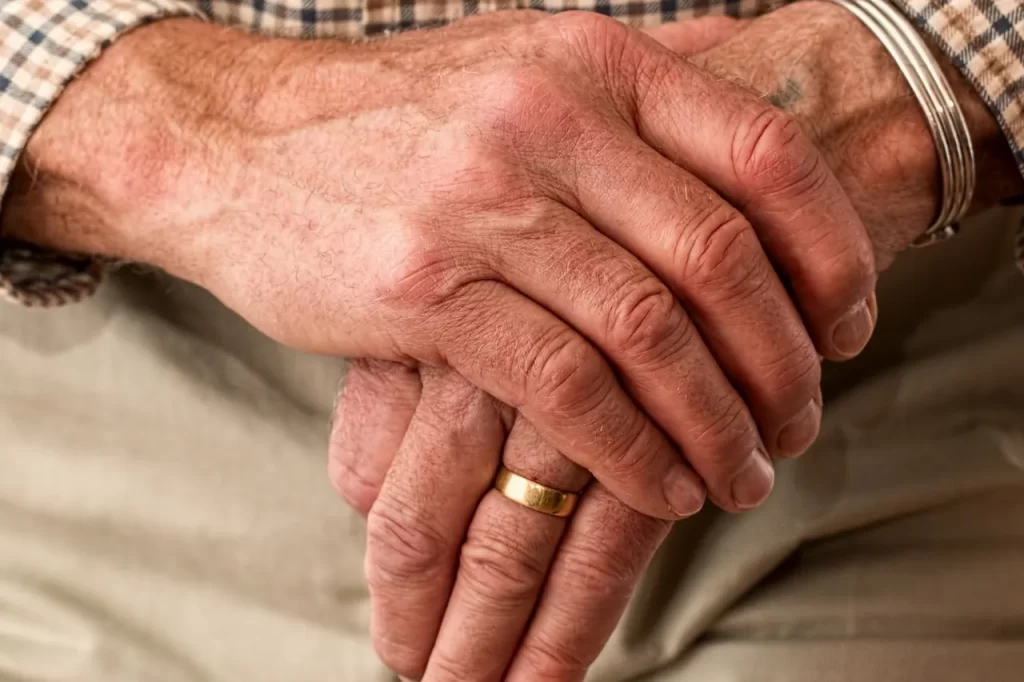
When Is It OK To Back Away? by LaVona Tomberlin “Sometimes the best move forward is stepping back.” Do you need to Back Away? From the time that we are small children we are taught that thinking of ourselves first is selfish. We are always supposed to think of others first or do we need to back away. We are always supposed to make others happy and safe and well. If all that is true, we should be happy. Give Until It Hurts As a small child if another child wanted our toy, we were told to give it to them without complaint. I know that as I grew, I learned not to be competitive; even to the point that if I was dating a boy and one of my friends liked him, I walked away. Sometimes that was painful but I felt that I was doing the right thing. It was my job to make others happy and that should make me happy and satisfied. Caretaker As an adult I have taken care of my mother for 7 years after the death of my father when she was ill and sad. During that time I lost my best friend and my father but it was my job to take care of my mother because she needed me. I did that until I became ill and someone said to me, actually it was my doctor, that if I did not take care of myself, I would be of no use to anyone. I took that advice and moved away to take care of me. Changing The Scene When I moved, I thrived. I found out what it felt like to be truly happy. Wouldn’t you know it, I found that I truly enjoyed helping people and did that when I wanted to but while I was doing what I loved to do. After moving I discovered that when I helped people, and did it with an open heart, I felt truly blessed. Take Care of Yourself Taking care of ourselves is not selfish. It is preparing us to be the best we can be so that we can offer our best selves to the people that we love and want to help. Sometimes that means actually doing the work. Sometimes that means stepping back and finding the right person to do the work who can do it best. This is not abandoning the person but protecting them. Sometimes backing away is simply allowing us to be what we are to them; their friend, their spouse, their child and allowing a professional to do the hard work of caring for them. They are trained to do this job. We are there to love them. Here are 8 ways to gain perspective Reflection: Helps you understand yourself and make informed decisions about difficult situations by examining your experiences and reflecting on what you’ve learned. Gratitude: Can help you shift your perspective by keeping a gratitude journal or finding a gratitude partner. Empathy: Understand the thoughts, emotions, and circumstances of others. Change Your Space: Can inspire a new perspective on life and expose you to new opportunities. Welcome Change: Helps you gain perspective and become more compassionate and supportive of others going through change. Think Differently: Helps you get into a creative mindset by looking at things from different angles and exploring new ways of thinking. Get a Different or Positive Perspective: Helps you improve your confidence and self-belief, and can lead to a more fulfilling life. Follow your Heart: Gain perspective by reimagining your role in the world and adding to your sense of wonder.
Placement Timeliness

Your Go To When is it Time to find a Senior Living Community? Deciding to place a loved one in any situation, whether it be Assisted Living, Memory Care, or Adult Care Home, is difficult, frightening, and guilt-ridden for anyone. As placement agents, how do we make this difficult task less difficult? As Placement Specialists, we are called upon to know about many things; more than that, we need to share what we know. We need to be the “Go to” for information and support for the family and the client. We need to take the burden from the family’s shoulders and take it upon ourselves to lighten their load. Support We must realize that the person who is closest to the client suffering from dementia probably does not have much support from those on the sidelines. The doctor may be unaware of the decline because the patient is at their best when they see the doctor. Friends and family call, and the patient has a normal conversation. Friends and family may take the patient on short outings or come for short visits, and again, the patient is at their best. These people may question your decisions and even accuse you of having ulterior motives, and you may feel guilty as if you are abandoning the patient. Now it deserves a moment to speak on Immediate Memory. Imagine a circle of people outside of the circle of 24hour care. It is necessary to listen and trust the 24hour caregiver closest to the person receiving care. Here is why, something that happens at this stage to the patient. They start acting like everything is ok during a one off visit. The loved one is in fact going to have no memory of what has gone on during a short visit. Only those people in his day to day. Immediate Memory feels like a put on, they can act normal for a short visit. Being able to dwell with people but having no memory. The person who deals with this is faulted because the loved one seems ok. Unless you live with the person 24 hours as constant caregiver you should realize the depth of care is different. This behavior seems performative and it is. It can also be signs of the early stages of Dementia. Selfcare First, we need to point out that if you do not take care of yourself, you will be worthless to anyone else. Second, it is important to understand that when you become a caregiver, you often lose your standing as a wife, husband, child, grandchild, or friend. You may become the target of their anger and frustration, and they also lose the relationship that means so much, and loneliness ensues for both of you. With Love Placing a loved one in an appropriate housing or care is the most loving act that one can do to show your love. You see the patient receiving the necessary care while maintaining your relationship with them. You may initially be the “bad” person, but this will pass, and you will come through it as their rock and return to your initial relationship as husband, wife, daughter. It is our experience that when you let someone else be their caregiver you can return to giving emotional loving support. Be their loving person rather than their day to day, 24/7 caregiver. You can feel great knowing you have provided safety and care and may be lucky to see them thrive. When they feel better and understand they are receiving what is best for them, you are the “good” person they love. You will feel loved and appreciated because they know they are loved. There are times that as a family-member caregiver that you will feel rejected and unloved. It is hard to be loving 24/7 and when someone treats you badly we often feel detached, a little or a lot or just a little bit angry. This is where more selfcare can help you. Where you feel you are actually about to disassociate. Stop for a moment and give yourself a break. By giving care to your loved one and not care to yourself you can break your psyche. It is not your duty. You are too involved being the “caregiver” of another and not giving yourself enough time. It is unfortunate for both and it really is the same for every caregiver. It is too much and it is always going to be time for things to change for the family. Mindfulness Be aware of your feelings and accept your knowledge. Although others may mean well, they are not present enough to know and accept the truth of the situation. Make the decision that is best for you and your loved one. Look at your past and, more importantly, look to the future. You will make the right decision and AGT can help if you are in the Portland, Oregon area.
Social Media for Professional Learning
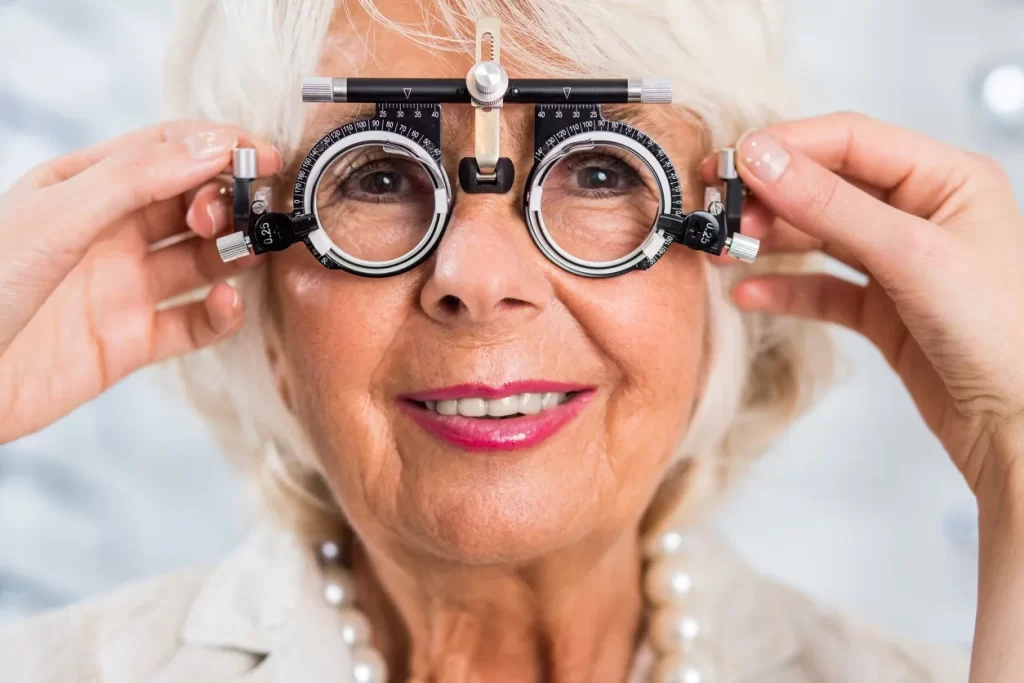
Signature Assignment The Integrated Classroom and the Role of the Educator LaVona Tomberlin AET/562 Social Media for Professional Learning University of Phoenix December 19, 2022 Dr. Sean Spear The Integrated Classroom and the Role of the Educator A Graceful Transition(AGT) is a patient centered company and the care that we provide our patients is first and foremost. In order to maintain our level of care and our occupancy it is of the utmost importance that we maintain our reputation. We believe in innovation, creatively sharing, and learning with the use of social media tools and we want to take advantage of the edge that technology offers. With technology comes accountability and creating a positive culture so we must take steps and plan to be creative in the most positive way. We must move forward in a way that does not compromise our integrity and our reputation in any way. The access to cyber connection makes it necessary to create company policies to invent guidelines and circumvent problems. Social Learning Social learning is simply learning from the observation and sharing of information. When people with different skill sets are teamed together they will learn from one another and they will remember what they learn because they will be using it as they observe and learn. We experience this as we work in teams here at UOP. Each of us have different skills and we rely on each other to do what we do best and at the same time we learn each other’s skills and are stronger and more skilled because we are together. We each bring a strength to the relationship, we collaborate and we build a relationship as we work together. Social or informal learning is an effective way to address employees’ learning needs. It is the process of learning with and from others within the organization, informally and by sharing knowledge. Social learning is simply learning from the observation and sharing of information. When people with different skill sets are teamed together they will learn from one another and they will remember what they learn because they will be using it as they observe and learn. We experience this as we work in teams here at UOP. Each of us have different skills and we rely on each other to do what we do best and at the same time we learn each other’s skills and are stronger and more skilled because we are together. We each bring a strength to the relationship, we collaborate and we build a relationship as we work together. Effects of Social Learning Social learning effects the workplace in a very positive way. Social learning reinforces the perception of a task as being novel or different which allows employees to learn better because of increased interest. We learn by internalizing information and we recall the information when we are faced with a similar situation, in business this is the reality and it builds retention. We also learn by repeating a process and since in business we are able to repeat processes we learn by the reproduction of problems and their solution as we use those new skills over and over. Motivation comes from doing something well and knowing that there is a team to help. Social learning provides that team and the support that is needed through communication and relationship building (Meij, 2022). Social learning will shorten onboarding time for new hires. It will promote skill sharing and better use of existing talents while inspiring more collaboration. It will allow employees to learn in their own time. When all is said and done it increases engagement, positive growth in job and organization performance and collaboration, the sharing of ideas to solve problems, and very important, retention of employees (Meij, 2022). Organizational Culture Social learning changes the culture of an organization from a culture of individuals to a culture of teams. Instead of a group of employees who work as individuals they will now have a group of individuals that communicate and collaborate exchanging ideas and sharing ideas and working as a team. They will have cohesiveness and employees that support one another and in so doing will be motivated as a team and will be more productive and successful. This culture will promote success within an organization and success for the individual (Meij, 2022). Social learning and role of the trainer The trainer assesses the readiness to adopt social learning and set the goals for the process. In social learning each person becomes a trainer but there must be one person that is the facilitator or maybe more. Their job is to make it happen, especially at first, to make sure that it is begun. They facilitate the process by making sure there is a richer use of the existing knowledge base. They direct learning paths and oversee discussion forums. They have access to experts to coach and mentor. They facilitate sharing of experiences and learning. They create communities of interest. They encourage learners to contribute and enhance the knowledge base. They improve the access to information or ensure a speedy update or dissemination of new information. They provide and take feedback by having formal feedback sessions with learners to determine what is working and what is not and to re-strategize to meet the goal (Pandey, 2017). Accountability Social media tools can have a positive or negative effect on an employee’s online and in-person reputation depending on their use of the tool. A person who uses social media effectively to communicate with other employees to help to ease a work load or to teach or train by answering questions and being of help will be well thought of. They might post a word of praise for another employee so that they are recognized for a kindness. These are all positive things that could boost their reputation. On the other hand if they posted a complaint about other employees or a negative about a training event that would be negative and demonstrate a
Caregiver Near Me
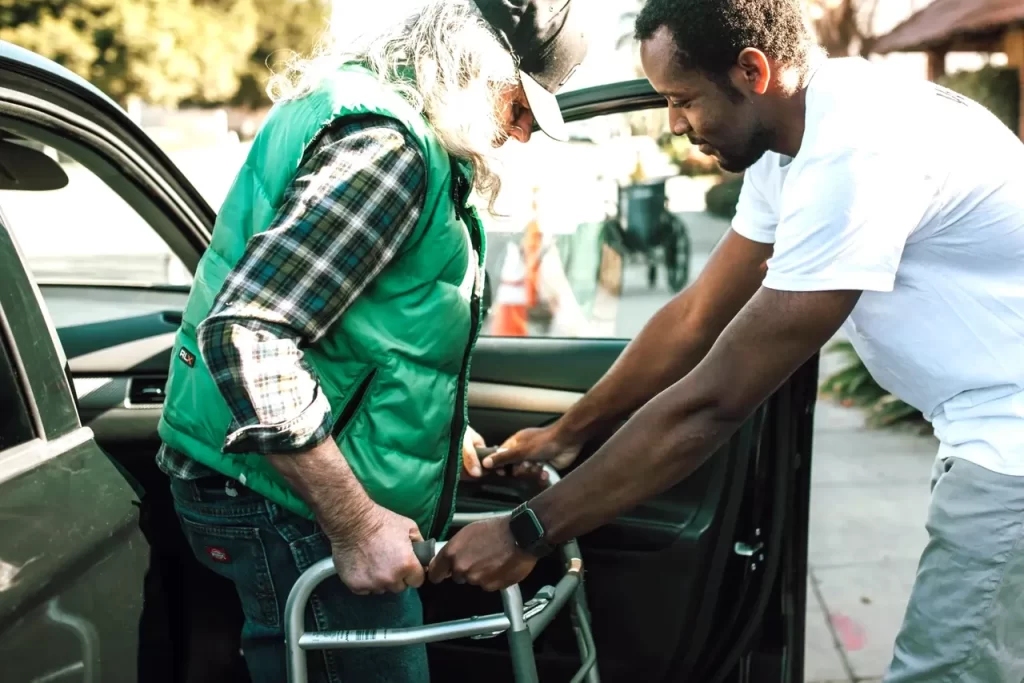
Emotional Toll Caring for Loved Ones whether growing older or youthful accident which leaves them in your care is going to have an emotional toll. All kinds of issues arise, there are good days and not so good days. As dementia cases continue to rise, the emotional burden on caregivers can grow heavy if you are not taking care. Caregivers are often the unsung heroes in a difficult situation, providing support and care for those they love and the people around them. Succinctly, the reality of watching someone you once knew slip away can be heartbreaking. In that heartbreak the emotional toll must be mitigated some how. Jennifer Kem wisely reminds us, “A caregiver cannot help anyone if they themselves are running ragged.” This sentiment underscores the importance of self-care for caregivers, who often neglect their own needs in the process of caring for others. Impact on Caregivers Caregivers face a unique set of challenges that can lead to mental health issues such as anxiety, depression, and insomnia. The emotional distress of seeing a loved one forget who you are or struggle with daily tasks can be overwhelming. As the disease progresses, caregivers often find it difficult to relate to the person they once knew, leading to feelings of isolation and sadness. It’s crucial for caregivers to recognize these feelings and seek help when needed. Support groups, therapy, and even casual meetups with friends can provide the emotional relief necessary to cope with the situation. Caregivers should also prioritize their physical health by incorporating regular exercise, nutritious eating, and good sleep hygiene into their routines. Coping Skills Protective Factors, or coping skills, for Caregivers and Loved Ones is very important. While the emotional toll on caregivers is significant, there are protective factors that can help not only the caregiver but also the person experiencing dementia: Regular Physical Activity – Encouraging caregivers to engage in regular physical activity is essential. This not only helps reduce stress but also boosts overall mental health. Whether it’s a brisk walk or a yoga class, movement is key. Eating Healthy – A balanced diet can improve both physical and mental well-being. Caregivers should make it a priority to eat nutritious foods, which can help maintain their energy levels and mood. Building a Healthy Support Network – Creating a strong support system is vital. This network should include friends, family, and even online communities. However, face-to-face interactions are crucial for emotional support. Good Sleep Routine – Quality sleep is essential for effective caregiving. Establishing adequate sleep hygiene can help caregivers recharge and maintain focus and patience. Regulating Stress and Emotions – Finding ways to manage stress is critical. Caregivers should not hesitate to seek professional help or lean on their support networks. Simple practices like deep breathing, meditation, or spending time in nature can have profound effects on mental health. Self-Care Ideas for Caregivers Incorporating small acts of self-care into our daily routines can make a big difference to everyone. You can even used these for the person you care for! Here are some practical ideas: Get a Massage: Treat yourself to a relaxing massage to relieve physical tension and improve your mood. Invite a Friend for Coffee: Social interactions can provide a much-needed emotional lift and remind you that you’re not alone. Create a Feel Good List: Write down five things you can do each day that make you feel good, smile, or laugh. Strive to do one a day. This could be listening to your favorite music, watching a funny show, or taking a moment to enjoy nature. Conclusion Caring for someone with dementia is an incredibly challenging journey, but it’s important for caregivers to remember that they are not alone. Taking proactive steps to care for their own mental and physical health can not only enhance their ability to support their loved ones but also improve their quality of life. For more ideas on engaging activities that can benefit both caregivers and loved ones, check out these dementia-friendly activities and fun ideas for brain health. Remember, the best way to care for someone else is to first care for yourself.
The Power of Love

Mom did NOT want to move! When talking to an elderly parent, listen closely and give them your full attention. Don’t start thinking about what you are going to say until they are finished speaking. Ask questions to show you understand and support them. Acknowledge and accept their feelings, and give realistic feedback on what you are capable of to help them. Listen Openly: Caroline shows that her mom values what she had to say. Even when mom did not. Respond With Understanding: Caroline’s responses showed respect and also conveys her support. Validate Their Emotions: It is tough to not agree yet acknowledge and accept your parents feelings. Caroline shows us what this looks like. Give Realistic Feedback: Let them know what you CAN do to help them. Sometimes this means we take a step back and pause the conversation. I love how Caroline demonstrates this in her article. Our loved ones deserve love at any age. That beautiful feeling of brightening, joy and sunshine. Love can happen at any age even to those of us who refuse to believe in it. Caroline Leavitt’s mother was not so loving toward Caroline. She did not believe in love with a man. However Caroline’s’ mom transformed, at 93, when she reluctantly, moved out of her home and into Senior Independent Living near me Facility. Caroline wrote an engaging article for Psychology Today about her mother, in Senior Living, who did not believe in love. That is how it was, until she and Walter found each other. Then the stagnate phrase “it is what it is” transformed into a kinetic phrase filled with possibilities and hope “it is what YOU make it”. Thanks to the Power of Love. During dinner one evening on new years day a handsome man also a resident in the same Senior Living Facility entered mom’s life. Caroline had done here best. She is a respectful caregiver. Filled with empathy for her loved ones. Caroline as her mothers caregiver recounts the many attributes of empathy in her article modeling respectful caregiving. Only four months after mom moved to the new facility a handsome man sat next to her during dinner. He was kind, warm and really smart. He was in his 80s. She asked him if he was going to the New Year’s Eve Party that night. “No,” and Caroline’s mother jumps in. “Then I’ll have to kiss you at midnight right now,” They fall in love. A deep love. They have joyful years together, spending time talking, laughing and sharing each meal together. This is a heartwarming and inspiring story! Caroline focuses on the character development of her senior mom, exploring her past experiences and reasons for not believing in love. The setting of an Independent Living Facility provides a charming and communal backdrop. She meets someone who unexpectedly changes her perspective. Her family witnessing this transformation adds a layer of emotional depth, highlighting the joy and new lease on life she experiences and helps others also experience. Caroline’s story explores themes of love at any age! Even as we age the importance of companionship as it touches all lives around us is evident. The power of love fosters unexpected connections in every relationship! That’s the power of love felt throughout generations. It is more than a feeling; it changes the depth of Caroline’s relationship with her mom and it transformed their relationship nearly overnight. Thank you Caroline Leavittt, for your hard work and clearly demonstrating respectful caregiving. We placement specialists at A Graceful Transition, salute you for your loving determination to persist in loving your mom through the tough times.
